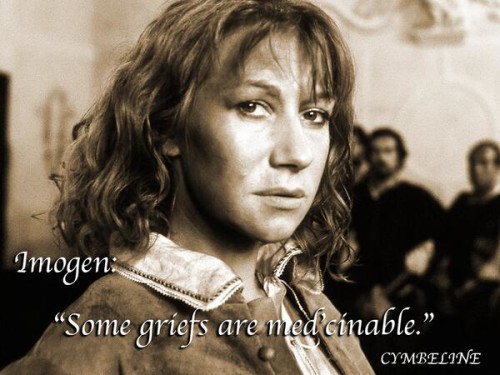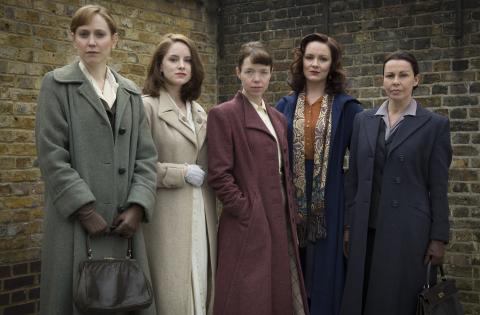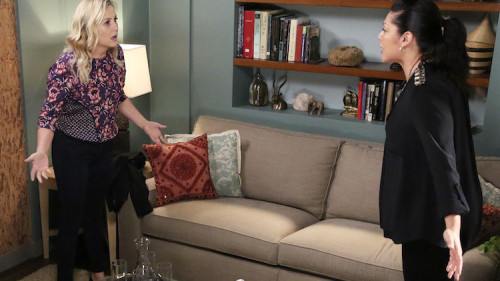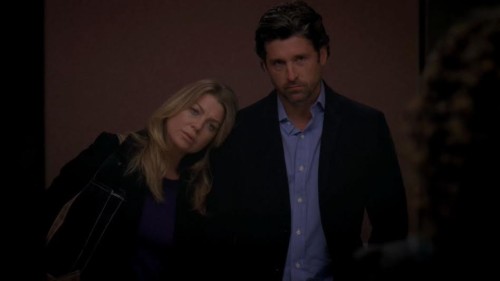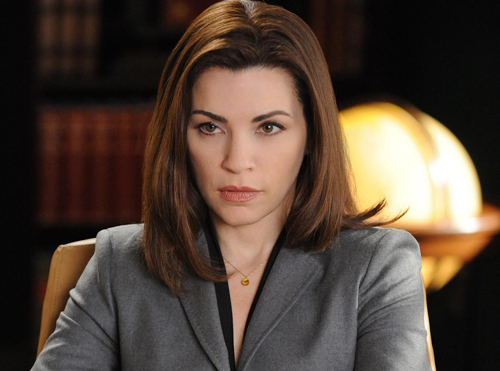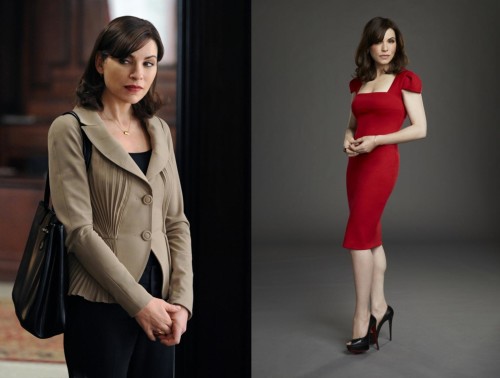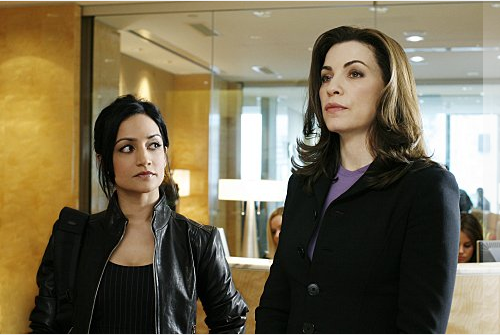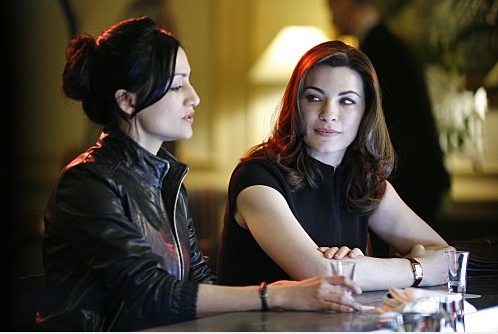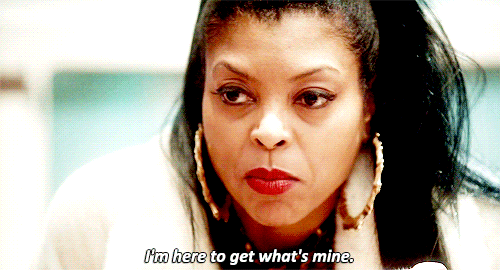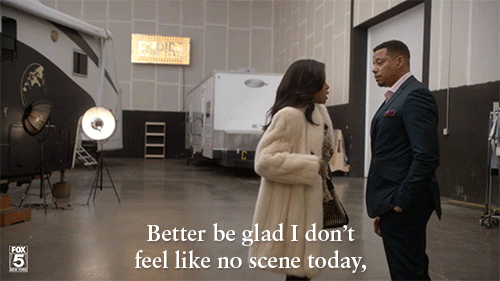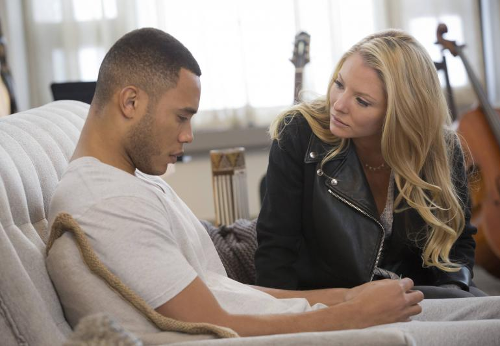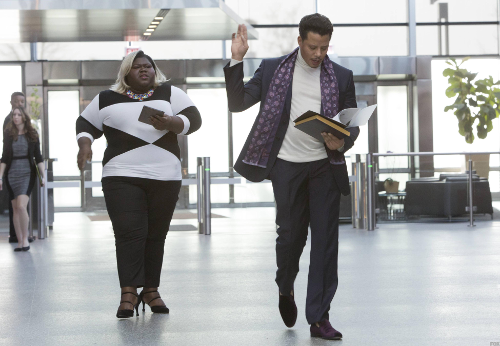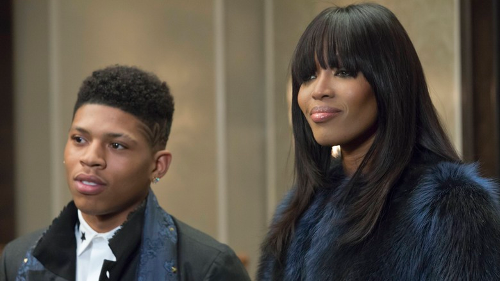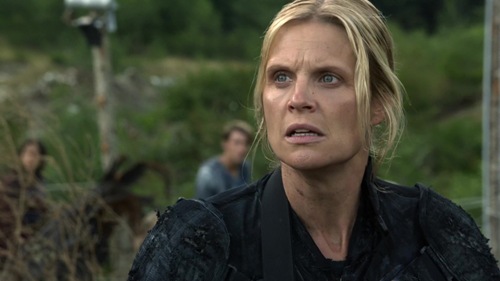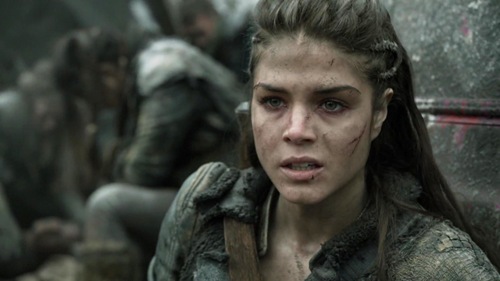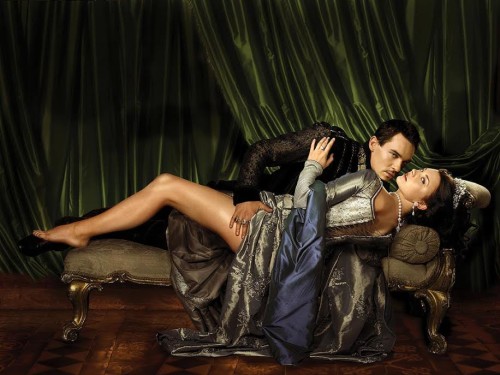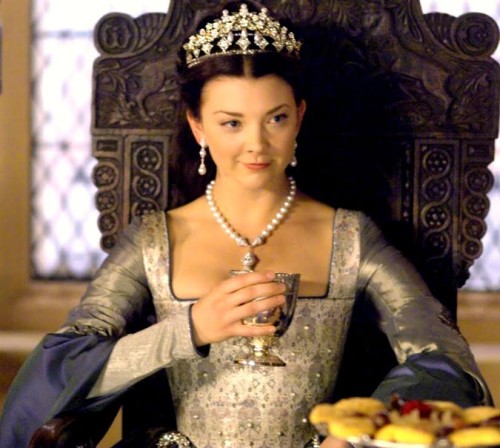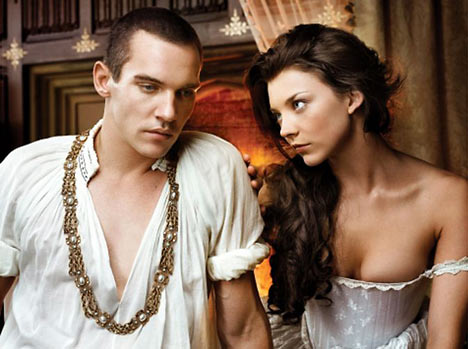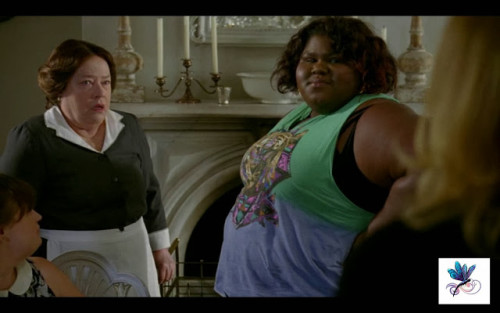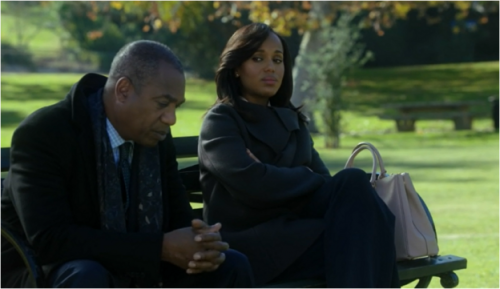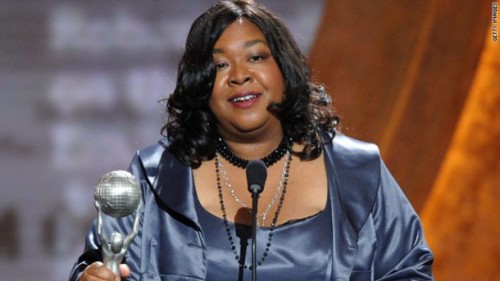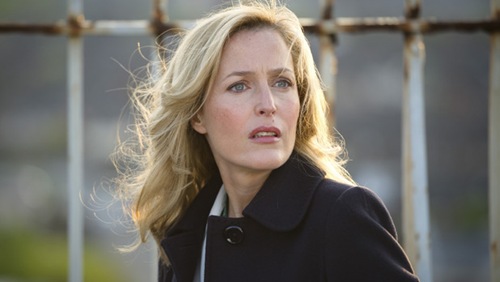
Written by Brigit McCone.
Plots were not Shakespeare’s strong point. He borrowed most from history or other authors, before illuminating them with psychological insight and philosophical depth. One of his final plays, 1611’s Cymbeline, is particularly jarring because the Bard is actually plagiarizing (“reimagining”?) himself: King Cymbeline (King Lear) becomes enraged and imprisons his only daughter, Imogen (Desdemona/Cordelia), for daring to marry “poor but worthy gentleman” Posthumus (Othello), who is exiled and meets cynic Iochimo (Iago), provoking Posthumus to bet that Iochimo can’t seduce super-chaste Imogen. Iochimo fakes proof of Imogen’s infidelity, being Iago and all, so Posthumus flies into Othellish rage and orders Imogen killed. Imogen discovers the order and flees in drag (she’s also Portia and Viola) as “Fidele” (she’s faithful, get it?), taking a death-simulating drug along the way (did I mention she’s Juliet?) There’s a wise woman and a cryptic tree prophecy that comes true unexpectedly (unless you’ve seen Macbeth). We’re one suicidal Dane short of a Greatest Hits album here.
After five or six more annoying coincidences, the plot somehow resolves. But hang in there because, as ever, there’s human truth lurking in Shakespeare’s narrative tangle, and Cymbeline is probably his most feminist play. In theaters now: a radical new version with Ethan Hawke, that aims to prove the play really is interesting, by burying its interesting exploration of female fidelity and male double standards under guns! Bikers! Testosterone! And soldiers! If you watch the trailer closely, you may briefly glimpse Dakota Johnson, playing Shakespeare’s lead:
[youtube_sc url=”https://www.youtube.com/watch?v=ulaGT6b8tgg”]
Grit! Shakespeare! Guns! Blank Verse! Testosterone! Manpain! Grrr!
Centering the woman is admittedly a dramatic weakness of Cymbeline, though not as dramatically weak as its plot. The crushing double standards of Shakespeare’s age demanded purity from a heroine, unstained by the fascinating flaws of Lear, Othello, Hamlet or Macbeth. Imogen is, honestly, a little dull. Shakespeare’s good servant, Pisanio, pointedly calls Imogen “more goddess-like than wife-like” in her endless forbearance. But crucially, jealous Posthumus repents his rage before discovering Imogen’s innocence. Where murder was the conventional response to female infidelity, at least on stage, Shakespeare has his hero turn on the audience, while still believing his wife guilty, and demand, “you married ones, if each of you should take this course, how many must murder wives much better than themselves for wrying but a little?” (Screw biker gangs; where’s Deepa Mehta‘s update confronting arranged marriage and honor killing?)
Though Shakespeare is limited to absolute chastity in his heroine, he subversively tests the play’s men with Imogen’s dilemmas, demanding female fidelity be equated with male. Luckily for Bitch Flickers, there’s a 1982 BBC adaptation smart enough to cast Helen Mirren and let her rip. Mirren breathes full-blooded life and passion into Imogen, adding conflict and doubt to her dull purity. Her Imogen is faithful, not by natural chastity, but by choice. From the opening, Shakespeare evokes possessive claustrophobia, with Posthumus gifting Imogen “a manacle of love. I place it upon this fairest prisoner.”

For her loyalty to Posthumus, Imogen is condemned as “disloyal thing” by her father, King Cymbeline, who demands that she marry his royal stepson, Cloten. Yet, when Cymbeline hears his own wife’s deathbed confession that she never loved him, only “affected greatness” (wanted his rank and wealth), he gasps: “but that she spake it dying, I would not believe her lips in opening it.” King Lear’s expectations clash with Othello’s. Imogen’s conflicting loyalties are embodied by Pisanio, a servant forced to swear loyalty to two masters, who justifies choosing the heart over vows: “wherein I am false, I am honest. Not true, to be true.” Compare Lady Macbeth: though stereotyped as a scheming manipulator, her inner monologues are devoid of personal ambition and filled with her need to fulfil her husband’s desires, taking the burden of his guilt upon herself. In her sleepwalking, she feels Macbeth’s victims sticking to her hands, even those of which she had no warning. Lady Macbeth ruins her husband, not out of selfishness, but out of a love so selfless that it sacrifices her moral judgment and her very identity. If only she had known when to be “not true, to be true.”

As Iochimo claims Imogen has cheated with him, our “worthy” Posthumus seems eager to believe the oath of this stranger over his wife’s vows, even when reminded by bystanders that the proofs are not absolute. Convinced of Imogen’s guilt, Posthumus launches into a misogynist rant, revealing paternity fraud as the root of his anxiety – “we are all bastards!” – as well as scapegoating male flaws on women – “there’s no motion tends to vice in man, but I affirm it is the woman’s part.” But his bet’s true motive is rather suggested by Iochimo: “he must be weighed by her value.” Imogen’s virtue is Posthumus’ status symbol, while Iochimo himself seems driven to prove the falsity of all womankind, as if the mere possibility of female loyalty would imply Iochimo’s responsibility for provoking past disloyalty. As objectifying is a classic strategy for denying your own impact on another, so Iochimo longs to “buy ladies’ flesh” in some way that will guarantee its not “tainting.”
This insecure craving for guaranteed affection becomes the counterproductive engine of his repulsiveness. Robert Lindsay’s Iochimo is like polished igneous rock: the hard, glittering bitterness of a cooled eruption. As he smuggles himself inside Imogen’s bedchamber, to memorize its decorations and the moles of her body as proofs of infidelity, Iochimo even peers into her bedside book, finding “the leaf’s turned down where Philomel gave up.” Philomel was a mythical Grecian heroine raped by her brother-in-law, whose tongue was torn out to prevent her testifying, an image central to Shakespeare’s Titus Andronicus. Lindsay’s choked gasp makes it clear that his character interprets Imogen’s reading matter as rape fantasy. Is she reading Philomel’s story as a cautionary tale, or has the pressure of stifling chastity really provoked “hot dreams” (Iochimo’s words) about the release of imaginary ravishment? Is it any of our damn business?

Though restraining himself from rape, Iochimo’s compulsive need to test and “prove” Imogen’s virtue is itself a violation. By referencing Philomel, Shakespeare reminds us of Imogen’s vulnerability, which the 1982 production underlines by Iochimo’s hovering shirtless over her as she sleeps, monitoring her every sigh. We must remember that our noble hero, Posthumus, has given letters of recommendation to this total stranger, along with a hefty bribe to rape his wife (theoretically, “seduce” her), because Posthumus is willing to accept proof of sex (not of consent) as evidence of Imogen’s betrayal. Though Posthumus swears the deepest love for Imogen, his underlying misogyny (“there’s no motion tends to vice in man, but I affirm it is the woman’s part”) has driven him to betray her utterly, ironically to test her faithfulness. As Imogen howls, when she discovers his suspicion: “men’s vows are women’s traitors!” Posthumus’ vow of love betrayed Imogen into believing herself exempted from his misogyny. But conditional pardons are no security. As Mirren mutters, ripping up love letters, all his scriptures are turned to heresy. There are many ways to break faith.

Meanwhile, in another part of the forest… meet Belarius, Cymbeline’s bravest soldier who, maddened by false accusations of treachery, kidnapped the king’s infant boys and raised them as his own. This apparently irrelevant subplot introduces the idea of unjust suspicion avenged by paternity fraud, just as Pisanio voiced Imogen’s divided loyalty. Belarius’ motive, “beaten for loyalty excited me to treason”, equally justifies Imogen in infidelity, by masculine logic. When his sons are returned to Cymbeline, the king asks if they are indeed his. Belarius does not answer “yes,” but “as sure as you your father’s.” Shakespeare proposes that no-one, male or female, can ever truly be verified. At least, not by the objective measure that Iochimo aspires to. Trusting their hearts alone, Imogen and her long-lost brothers love each other, without knowing their kinship.
Belarius, meanwhile, proves his “honest” courage fighting Romans, rallying fleeing Britons by yelling that only deer should be slaughtered while running away: “Britain’s harts die flying, not our men.” The pun is appropriate. Male culture promotes valor in warfare, but justifies defensive cowardice in love, provoking the very ruin it most fears. Britain’s hearts die flying, like its harts. Bayonets, bullets or biker gangs, they’re still metaphors for sexual insecurity. As in the battle, where some were “turned coward but by example” and needed only a rallying cry to regain courage, so Posthumus’ blistering “you married ones…” speech rallies Shakespeare’s audience to a more courageous love, where chastity is a faithful heart, not a flaunted status symbol: “I will begin the fashion, less without and more within.”

Shakespeare not only explores the hypocrisy of chastity testing and daughterly duty, but the exhausting demands of unwanted attention. Imogen’s suitor, Cloten, seeks to win her by conventional expressions of love, serenading her with music to make her obligated. Tellingly, he describes this wooing as battle – “I have assailed her with musics” – urging his fiddlers and singer “if you can penetrate her with your fingering, so we’ll try with tongue too” to emphasize the violation of his unconsensual serenading. If she yields, Imogen betrays Posthumus. If she remains silent, her silence will be taken for yielding. Finally, she is provoked into telling Cloten that she hates him, that if every hair of his head were a man like him, she would prefer Posthumus’ rags to the lot of them. Cloten takes this insult as provocation to plot the rape of Imogen. There’s just no escaping the bind of his manacle of love. At least, not until he tries that arrogant attitude on a man, and gets his head lopped off. Gotta love Will. A fiery Helen Mirren dominates, as she battles through Shakespeare’s chastity gauntlet. If only her exasperated “but that you shall not say I yield, being silent, I would not speak” felt less familiar to today’s woman.
By the finale, the Queen and Cloten, heartless plotters of murder and rape, are dead. But what of Posthumus, whose insecurity would enable a stranger to rape his wife? What of Cymbeline, shocked at his own wife’s lovelessness, but demanding loveless marriage for his daughter? What of Belarius, honest warrior but paternity fraudster? What of Iochimo, self-loathing “tainter” of womankind? Forgiveness is their punishment, conscience their natural judge. Though Iochimo stole Imogen’s “manacle of love” as false proof of her infidelity, he accepts his heart must bleed in its trap. Karma’s a bitch. Britons make voluntary peace with Romans. King Cymbeline declares: “pardon’s the word… to all!” After recalling his greatest tragedies, Shakespeare suggests that all could end well, if men loved without defensive cowardice. “Some griefs are med’cinable.” Rising to such newfound greatness of heart, King Cymbeline describes himself as becoming “mother.” William Shakespeare: feminist punk?

See also at Bitch Flicks: What Shakespeare Can Teach Us About Rape Culture, Helen Mirren stars in Julie Taymor’s Gender-bent The Tempest
Brigit McCone can rant for days about how misunderstood Lady Macbeth is. She writes and directs short films and radio dramas. Her hobbies include doodling and working “a breach in nature for ruin’s wasteful entrance” into everyday conversation.
